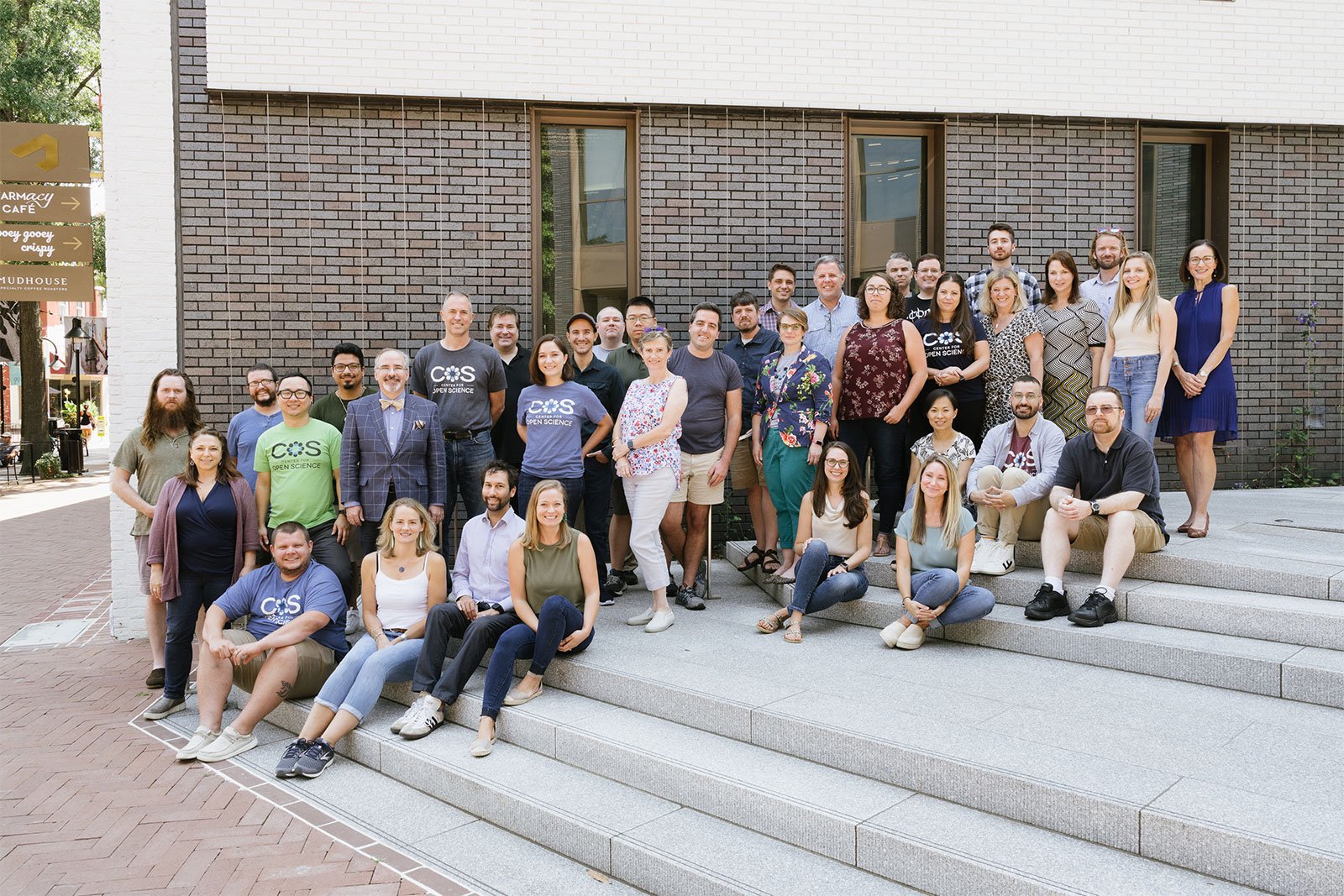
To meet that objective, COS employs a systems strategy involving technology to make open practices possible and easy, community building to make open practices normative, and stakeholder engagement to make open practices rewarding and required.
COS's philosophy and motivation is summarized in its strategic plan and in scholarly articles outlining a vision of scientific utopia for research communication, practice, and collaboration.
All scholarly content is preserved, connected, and versioned to foster discovery, accumulation of evidence, and respect for uncertainty.
Scholarly service providers monetize and compete on quality of service rather than by controlling access to content.
Institutions evaluate researchers based on both the content of their discoveries and the process by which they were discovered, not on where those results are published.
Funders have full insight into the returns on their research investments for prioritizing future investments.
Researchers prioritize getting it right over getting it published, and will receive credit for scholarly contributions beyond the research article such as generating useful data or authoring code that can be reused by others.
Reviewers provide feedback at all stages of the research lifecycle and get credit and reputation enhancement for reviewing.
Librarians apply curation and data management expertise throughout the research lifecycle, not just retrospectively.
Consumers have direct access to review and primary evidence for scholarly claims. All stakeholders are included and respected in the research lifecycle and share pursuit of truth as the primary incentive and motivation for scholarship.
COS’s Theory of Change recognizes that academic research is a social system, and that starting and scaling behavior change requires a systems-based intervention strategy. That means that every organization and participant in the research culture is an agent of stasis or change. And, to succeed in aligning scholarly practices with scholarly values, we must solve the coordination problem and ultimately activate everyone. But, no realistic strategy for behavior change can expect to activate everyone all at once.
COS’s strategy is to catalyze innovators and early adopters as the beachhead for change in a scholarly community by providing tools to make it possible to do the new behaviors. Then, making early adopters’ behavior visible and aspirational initiates changing community norms about how science should be done. That, combined with training and ensuring that the behaviors are fit for purpose, brings the behaviors into the mainstream. To scale and sustain those emerging norms, publishers, funders, and institutions align their incentives and policies so that researchers are rewarded and ultimately required to do the behaviors.

The Transparency and Openness Promotion (TOP) Guidelines provide and promote a policy framework for aligning values, incentives, and policies for journals, funders, and institutions.
Journals and funders to realign incentives with Rigor and Transparency Initiatives using Registered Reports, a publishing format where peer review happens prior to data collection.
Grassroots organizing activates champions to adopt new practices and engage their community. Targeted communications such as badges make their new behaviors visible to others.
OSF is constantly evolving with user-centered product development to integrate into researchers' daily workflows. Training and customization ensures that the tools are fit-for-purpose for all kinds of research.
The open-source Open Science Framework (OSF) makes it possible for researchers to improve rigor, transparency, and sharing of all their work across the research lifecycle.
Meet our people.
Meet our board of directors.
Learn more about COS's 2026-2028 strategic plan.
Learn more about our funding from individuals, philanthropic foundations, and federal agencies.
View our press releases.
Check out our annual
Impact Reports.
View our history of advancing openness, integrity, and reproducibility of research.
Learn more about how our organization operates, the impact of our efforts, our financial position, and our nonprofit status.
Find information on our trusted infrastructure, our efforts towards continuous improvement in data management, and our accredited processes.
See how diversity, equity, and inclusion are central to our mission and strategy.
Explore career opportunities and learn about our fantastic work environment that empowers our team to grow as professionals and people.

6218 Georgia Avenue NW, Suite #1, Unit 3189
Washington, DC 20011
Email: contact@cos.io

Unless otherwise noted, this site is licensed under a Creative Commons Attribution 4.0 International (CC BY 4.0) License.
Responsible stewards of your support
COS has earned top recognition from Charity Navigator and Candid (formerly GuideStar) for our financial transparency and accountability to our mission. COS and the OSF were also awarded SOC2 accreditation in 2023 after an independent assessment of our security and procedures by the American Institute of CPAs (AICPA).
We invite all of our sponsors, partners, and members of the community to learn more about how our organization operates, our impact, our financial performance, and our nonprofit status.